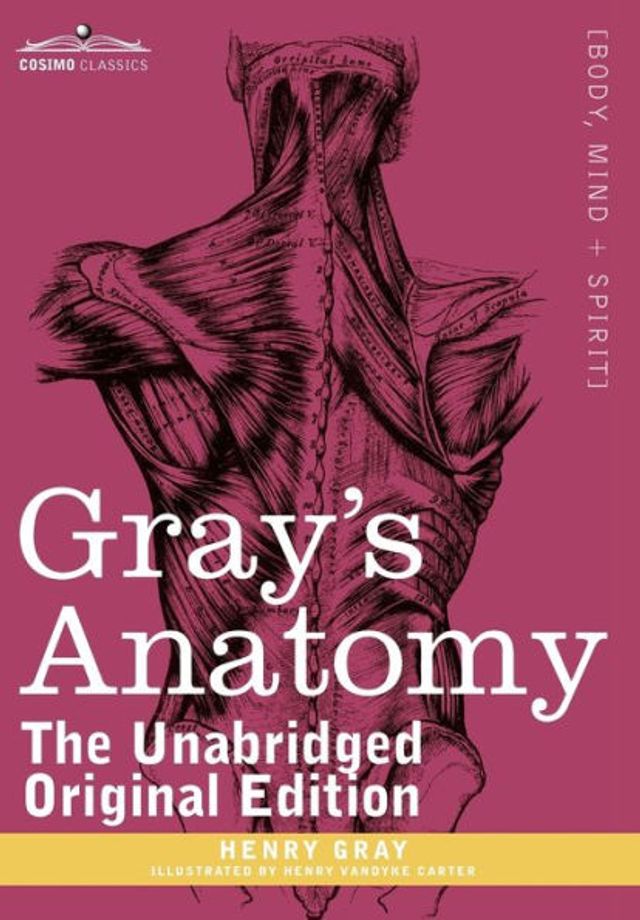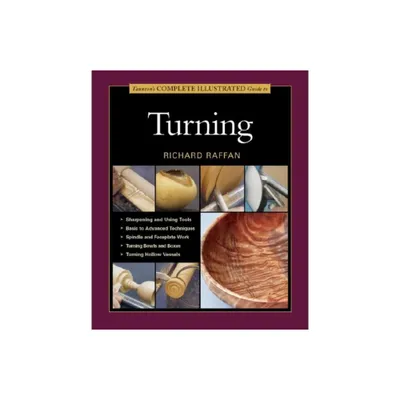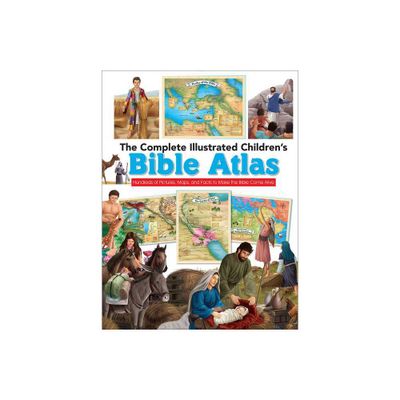Home
Gray's Anatomy: Complete & Illustrated With 1247 Original Coloured Drawings
Loading Inventory...
Barnes and Noble
Gray's Anatomy: Complete & Illustrated With 1247 Original Coloured Drawings
Current price: $76.99


Barnes and Noble
Gray's Anatomy: Complete & Illustrated With 1247 Original Coloured Drawings
Current price: $76.99
Loading Inventory...
Size: OS
*Product Information may vary - to confirm product availability, pricing, and additional information please contact Barnes and Noble
MOST VALUABLE ANATOMY BOOK IN THE WORLD
Classic 1918 Publication Revised Edition, “1247 Coloured Engrawings” As Well As a “Subject Index” With 13,000 Entries Ranging from the “Abdomentum” to the “Zygomaticus”
REVISED & RE-EDITED & RE-ILLUSTRATED “1918” TWENTIETH EDITION AND WHOLE IN ONE VOLUME
Gray's Anatomy is an English-language textbook of human anatomy originally written by Henry Gray and illustrated by Henry Vandyke Carter that may be most readable and popular anatomy book in the World literature. Earlier editions were called
Anatomy: Descriptive and Surgical
and
Gray's Anatomy: Descriptive and Applied
, but the book's original name is commonly shortened to, and later editions are titled,
Gray's Anatomy
.
The book is widely regarded as an extremely influential work on the subject, and has continued to be revised and republished from its initial publication in 1858 to the present day. The latest edition of the book, the 41st, was published in September 2015. Last's textbook, 'Anatomy Regional and Applied', was first published in 1954 and heralded a new generation of anatomy texts providing a more concise option to 'Gray's Anatomy' or Cunningham's 'Textbook of Anatomy'.
Origins of the Book’s History:
The English anatomist Henry Gray was born in 1827. He studied the development of the endocrine glands and spleen and in 1853 was appointed Lecturer on Anatomy at St George's Hospital Medical School in London. In 1855, he approached his colleague Henry Vandyke Carter with his idea to produce an inexpensive and accessible anatomy textbook for medical students. Dissecting unclaimed bodies from workhouse and hospital mortuaries through the Anatomy Act of 1832, the two worked for 18 months on what would form the basis of the book. Their work was first published in 1858 by John William Parker in London. It was dedicated by Gray to Sir Benjamin Collins Brodie, 1st Baronet. An imprint of this English first edition was published in the United States in 1859, with slight alterations. Gray prepared a second, revised edition, which was published in the United Kingdom in 1860, also by J.W. Parker. However, Gray died the following year, at the age of 34, having contracted smallpox while treating his nephew (who survived). His death had come just three years after the initial publication of his
Anatomy Descriptive and Surgical
SINCE the publication of the first English edition of this work in 1858 and the first American edition in 1859 great advances in the subject of Anatomy have been made, especially in microscopic anatomy and the anatomy of the embrio. This knowledge was embodied from time to time in the successive editions until finally considerable portions of the text, sometimes sections, were devoted to these subjects. However, the main text has always remained primarily a descriptive anatomy of the human body.
In the present edition the special sections on embryology and histology have been distributed among the subjects under which they naturally belong. New matter on physiological anatomy, laws of bone architecture, the mechanics and variations of muscles have been added, occupying much of the space formerly devoted to the sections in applied anatomy.
[EDITOR]
Classic 1918 Publication Revised Edition, “1247 Coloured Engrawings” As Well As a “Subject Index” With 13,000 Entries Ranging from the “Abdomentum” to the “Zygomaticus”
REVISED & RE-EDITED & RE-ILLUSTRATED “1918” TWENTIETH EDITION AND WHOLE IN ONE VOLUME
Gray's Anatomy is an English-language textbook of human anatomy originally written by Henry Gray and illustrated by Henry Vandyke Carter that may be most readable and popular anatomy book in the World literature. Earlier editions were called
Anatomy: Descriptive and Surgical
and
Gray's Anatomy: Descriptive and Applied
, but the book's original name is commonly shortened to, and later editions are titled,
Gray's Anatomy
.
The book is widely regarded as an extremely influential work on the subject, and has continued to be revised and republished from its initial publication in 1858 to the present day. The latest edition of the book, the 41st, was published in September 2015. Last's textbook, 'Anatomy Regional and Applied', was first published in 1954 and heralded a new generation of anatomy texts providing a more concise option to 'Gray's Anatomy' or Cunningham's 'Textbook of Anatomy'.
Origins of the Book’s History:
The English anatomist Henry Gray was born in 1827. He studied the development of the endocrine glands and spleen and in 1853 was appointed Lecturer on Anatomy at St George's Hospital Medical School in London. In 1855, he approached his colleague Henry Vandyke Carter with his idea to produce an inexpensive and accessible anatomy textbook for medical students. Dissecting unclaimed bodies from workhouse and hospital mortuaries through the Anatomy Act of 1832, the two worked for 18 months on what would form the basis of the book. Their work was first published in 1858 by John William Parker in London. It was dedicated by Gray to Sir Benjamin Collins Brodie, 1st Baronet. An imprint of this English first edition was published in the United States in 1859, with slight alterations. Gray prepared a second, revised edition, which was published in the United Kingdom in 1860, also by J.W. Parker. However, Gray died the following year, at the age of 34, having contracted smallpox while treating his nephew (who survived). His death had come just three years after the initial publication of his
Anatomy Descriptive and Surgical
SINCE the publication of the first English edition of this work in 1858 and the first American edition in 1859 great advances in the subject of Anatomy have been made, especially in microscopic anatomy and the anatomy of the embrio. This knowledge was embodied from time to time in the successive editions until finally considerable portions of the text, sometimes sections, were devoted to these subjects. However, the main text has always remained primarily a descriptive anatomy of the human body.
In the present edition the special sections on embryology and histology have been distributed among the subjects under which they naturally belong. New matter on physiological anatomy, laws of bone architecture, the mechanics and variations of muscles have been added, occupying much of the space formerly devoted to the sections in applied anatomy.
[EDITOR]
![Gray's Anatomy: [Illustrated With 1247 Coloured Well Drawing Engrawings]](https://prodimage.images-bn.com/pimages/9781537437989_p0_v3_s600x595.jpg)

















